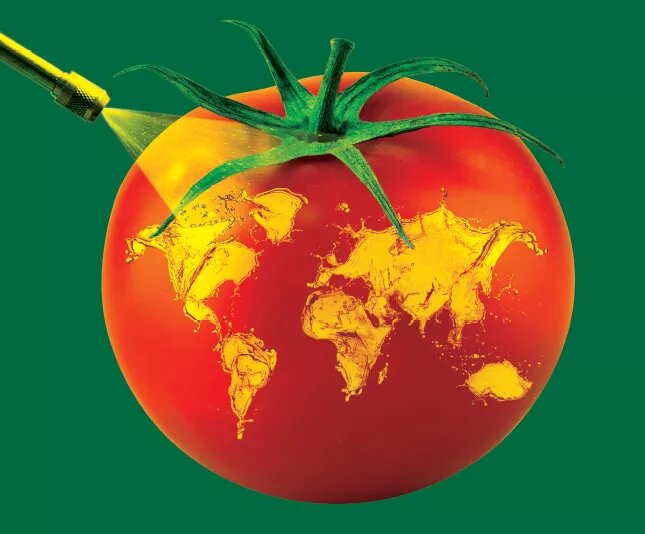
Traces of pesticides from agriculture can be detected everywhere – in beer and in honey, on fruit and on vegetables, in grass on playgrounds and even in urine and in the air. We have known for a long time now that pesticides have a negative effect on human health. We have also known that they cause severe harm to insects and plants and contaminate water bodies for years.
Rachel Carson published her globally acclaimed book “Silent Spring” as early as 1962, in which the biologist described the harmful effects of pesticide use. Her book is considered groundbreaking for the environmental movement and one of the most influential non-fiction books of the 20th century. Since then, many pesticides have been taken off the market. New ones have been introduced with the promise that they are less harmful to people and the environment. Promises that have rarely been kept.
Sixty years after Carson‘s book came out, greater amounts of pesticides are being applied worldwide than ever before, despite stricter regulations in approval processes, and voluntary as well as binding agreements on the handling of pesticides. According to a recent study, the number of people affected by pesticide poisoning each year has risen to 385 million, and pesticide use is considered a major cause of species decline. Especially in countries with high levels of biodiversity, the cultivation of genetically modified soy has contributed to a dramatic increase in pesticide use.
Hardly any country in the world has an ambitious pesticide reduction strategy or even ideas for an agriculture that is truly independent of chemical crop protection. There is a reason for this: The market for pesticides is highly lucrative. Only a few well-connected and influential agrochemical companies divide it up among themselves. At the forefront: German companies like Bayer and BASF. No wonder, then, that Germany is one of the largest pesticide exporters of the world.
The promising growth markets of pesticide companies have long since ceased to be in Europe and are mainly found in Latin America and Asia today. But pesticides are also increasingly being exported to African countries. Nigeria is one of the largest importers of pesticides on the African continent. It already faces mounting public health and environmental challenges due to their high use. A significant number of these pesticides are no longer authorized or banned in the EU due to their harmful effects.
A key demand of Nigerian civil society is therefore to create regulations and laws that ban these toxic substances from being imported. The fact that the new German government has committed itself to create laws that will prohibit their export is a welcome development.
However, an import ban on the most toxic substances does not go far enough. There has to be more thorough registration processes, effective controls and, at the same time, support for farmers to use fewer pesticides. Alternative agricultural strategies like integrated pest management, the use of biopesticides, organic farming and agroecology are still largely overlooked. Like the EU, Nigeria should chart a path towards an overall reduction in pesticide use.
The climate crisis will increase the spread of plant diseases, pest infestations, and extreme weather in many parts of the world. To reduce the increased pressure on beneficial and essential insect and plant populations, our agricultural systems must adapt to meet these challenges with fewer pesticides. To do so, they must become more diverse and protect and use beneficial insects as allies. We face an urgent task: To learn how to fight alongside nature instead of against nature. To succeed, we must set the course now. That is why we want to use this atlas to provide data and facts to facilitate a lively debate.